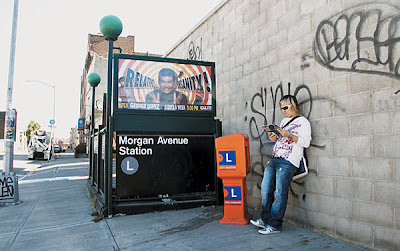
Facebook Backer Wishes Women Couldn't Vote Gawker first outside investor in Facebook .... Thiel is the former CEO of PayPal who now runs the $2 billion hedge fund Clarium Capital and a venture-capital firm called the Founders Fund. His best-returning investment to date, though, has been Facebook. His $500,000 investment is now worth north of $100 million even by the most conservative valuations of the social network. .......... all those voting females have wrecked things .......... "The 1920s were the last decade in American history during which one could be genuinely optimistic about politics. Since 1920, the vast increase in welfare beneficiaries and the extension of the franchise to women - two constituencies that are notoriously tough for libertarians - have rendered the notion of "capitalist democracy" into an oxymoron." ........... The problem with women is that they don't vote like their menfolk tell them. We would have so much more freedom, Thiel suggests, if only we'd deprived women of it. ...... rumors we'd heard about Thiel during his PayPal days, especially while he was fitfully coming out as a gay man. ......... The clubby ranks of VCs are mostly straight, white and male. They instinctively prefer entrepreneurs who remind them of themselves. At best, it's a wrongheaded sense of caution. At worst, it's prejudice with a handy alibi. ...... The effects are hard to document. VCs fund so few of the companies they talk to that it's hard to prove a case of discrimination; there are a hundred reasons why they might pass on any given startup. ....... I think it explains a lot about Thiel: His disdain for convention, his quest to overturn established rules. Like the immigrant Jews who created Hollywood a century ago, a gay investor has no way to fit into the old establishment. ....... Peter Thiel, the smartest VC in the world, is gay.For those of us who aspire for tech entrepreneurship with a purpose, Thiel's very presence is an offense. I think Facebook should go ahead and figure out a way to return his investment money.
I had never heard of Peter Thiel before this article. Then I read the first few paragraphs and got offended. Then I read a second article on him and found out that, one, he is gay, and two, he is considered a very smart venture capitalist.
I tried to cut some slack. If you are smart, it is hard to fit in. If you are gay, it is hard to fit in.
I have personally encountered people in life who are otherwise losers but who think if only they can talk racist, somehow they will belong with people who think that, well, they are losers. Often times, the formula seems to work.
It is possible Thiel thinks his sexism will somehow give him a sense of belonging. But what exactly is he trying to belong to?
I can understand differences in opinion. I can understand not agreeing on, say, tax policy. I can understand voting for McCain. But what Thiel has expressed is rabid sexism, and racism, and there can not be room for that. The social media echo chamber needs to talk out loud on this one.








